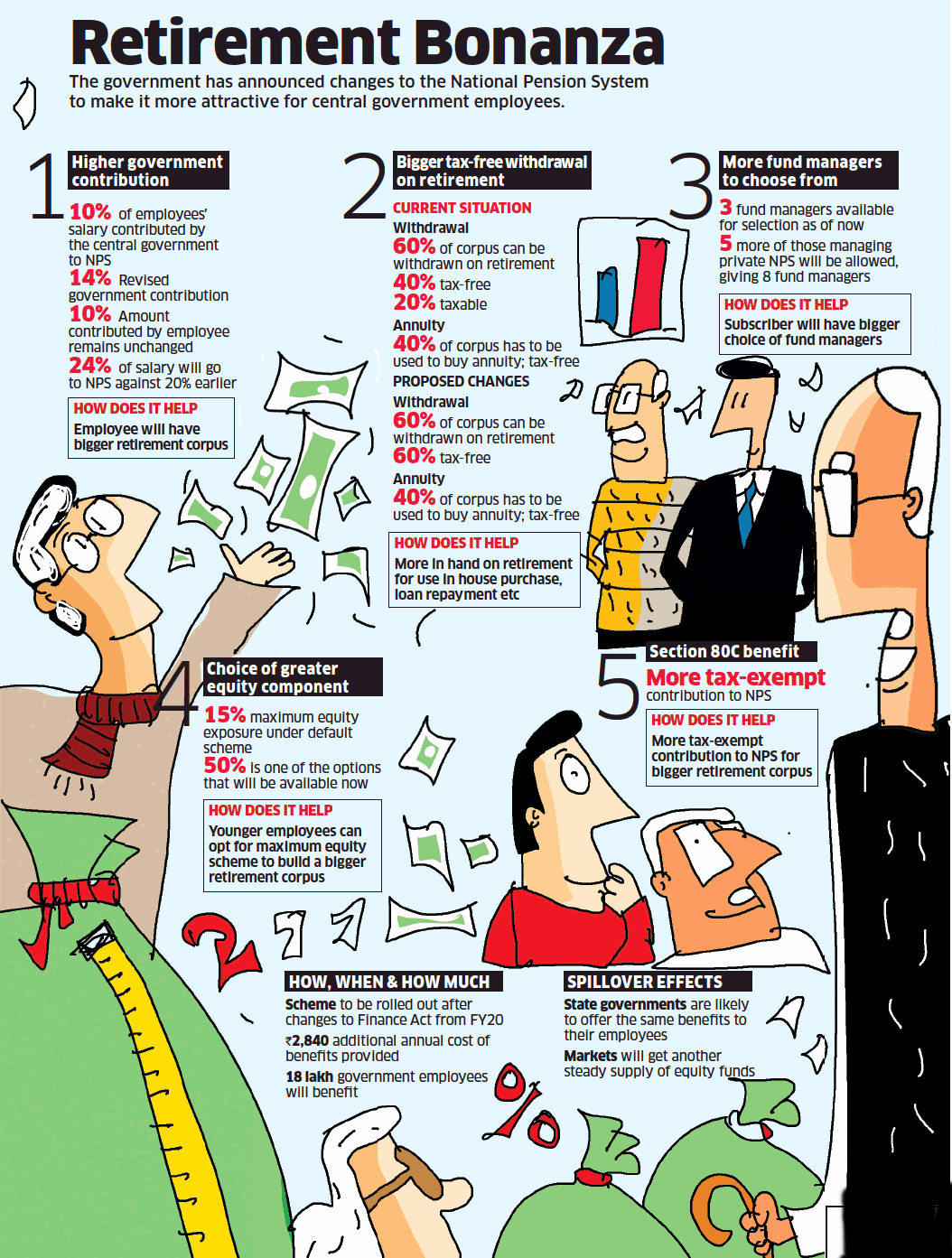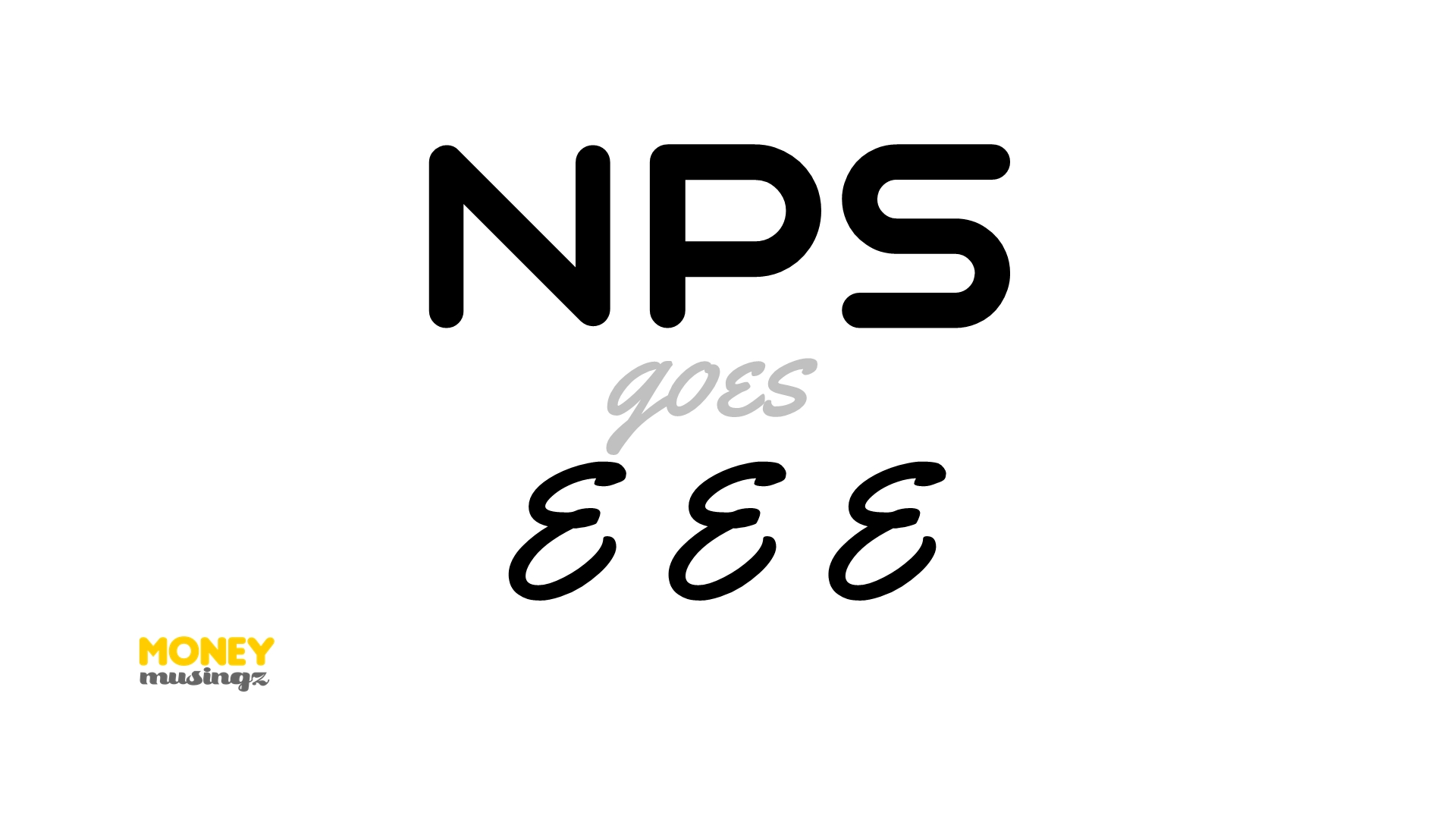
The government granted NPS exempt, exempt and exempt or EEE status, which means that like PPF (public provident fund) or EPF (employee provident fund) investment at the investment stage, accumulation and withdrawal stage will be tax free. Earlier, NPS only enjoyed exempt, exempt and taxable or EET status, meaning that on withdrawal NPS was partially taxable.
New NPS rules:
NPS on withdrawal will be totally tax exempt. Currently, 40% of the total accumulated corpus utilised for purchase of annuity at retirement or reaching the age of 60 is already tax exempted. Out of 60% of the accumulated corpus withdrawn by the NPS subscriber at the time of retirement, 40% is tax exempt and balance 20% is taxable. Now, the whole 60% of the accumulated corpus will be tax free, bringing it on a par with other investment schemes like PPF and EPF.
These changes in tax rules on NPS withdrawal will apply to all subscribers, including government employees.
In another tax benefit for NPS subscribers, contribution under Tier-II of NPS will now be covered under Section 80C for deduction up to Rs. 1.50 lakh for the purpose of income tax benefits, provided there is a lock-in period of three years. This brings it on a par with other schemes such as EPF and PPF.
NPS offers two types of accounts to its subscribers. The Tier I account is non-withdrawable till the subscriber reaches the age of 60. Partial withdrawal before that is allowed in specific cases. The Tier II account is a voluntary savings account and subscribers can withdraw their money from it whenever they want.
In another rule change, the government has decided to increase its contribution to the NPS for central government employees to 14% of their basic pay as compared to 10% earlier. This move will benefit 18 lakh central government employees. The central government employee’s contribution will remain changed at 10% of the basic pay. This will increase the accumulated corpus of all central government employees covered under NPS eventually give them greater pension payouts after retirement without any additional burden. Currently, new entrants to central government service on or after 1 January 2004 are covered by NPS.
The government also said that the central government will get more investment options (both debt and equity) and choice of pension fund managers.
The exact date from which these changes would come into effect would be notified soon. Normally such changes are made from the new financial year since they require changes in the finance bill.


